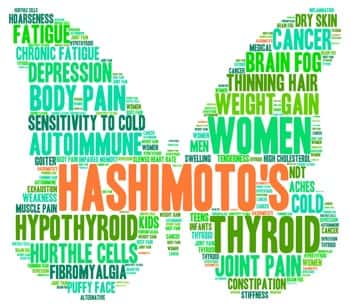
Thyroid dysfunction is surprisingly common. Hashimoto’s disease, an autoimmune disorder, is frequently the cause. The usual treatment, levothyroxine, under brand names or as a generic medicine, is among the most frequently prescribed drugs in America. What do you need to know about the thyroid and its treatment?
Treating Hashimoto’s Disease with Levothyroxine:
Q. I have had Hashimoto’s disease since the late 90s. The doctor who diagnosed it said generic levothyroxine is fine as long as the pharmacy doesn’t change pharmaceutical suppliers; make sure they stick with the same one. How do you know when they change?
Lately, my hair is thinning terribly and breaking off. I also have brain fog, constipation, aching joints and insomnia.
I just had a thyroid test and my doctor said it was fine. He said maybe my pharmacy was buying from a different manufacturer. The pills smell different, but there’s no information on the bottle.
What Is Hashimoto’s Disease?
A. Hashimoto’s thyroiditis is an autoimmune condition in which the body attacks the thyroid gland. As a result, the gland loses its ability to produce adequate thyroid hormone. Women are more likely to suffer from this condition than men are. The diagnosis generally requires blood tests for TSH (thyroid stimulating hormone), T4 (levothyroxine) and antibodies against thyroid compounds such as thyroglobulin and thyroid peroxidase.
If destruction from Hashimoto’s disease results in the thyroid gland underproducing its hormones, the usual treatment is levothyroxine, also known as T4. Brand names are Levothroid, Levoxyl and Synthroid.
You could take any of these forms of levothyroxine, but they are not readily interchangeable. That is why your doctor recommended sticking with the same generic manufacturer. That isn’t always listed on your pill bottle, so you will need to talk with the pharmacist to find out which generic manufacturer they were using when you were feeling well. Request that you continue to get only levothyroxine from that particular manufacturer. You may need to remind the pharmacy of your request whenever you get a refill.
How Is Your Thyroid Doing?
The symptoms you report are suggestive of inadequate thyroid hormone. Your doctor’s report that your thyroid is “fine” is not specific enough. You’ll want to get the actual results of your tests and keep track yourself. Our revised Guide to Thyroid Hormones offers more details on interpreting test results and treating hypothyroid symptoms. You may also wish to listen to our interview with Antonio Bianco, MD, PhD, of Rush University Medical Center and patient advocate Mary Shomon. It is Show 1015: Thyroid Mysteries, Controversies and the Latest Research.

